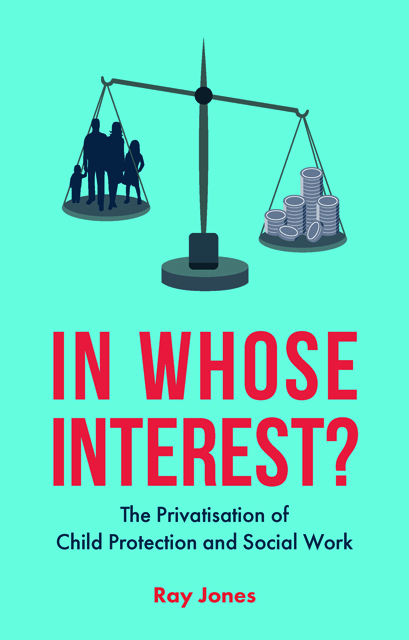two - Creeping political control: the Children and Social Work Bill and anti-professionalism
Published online by Cambridge University Press: 14 April 2023
Summary
In May 2016 as a part of its intention to reframe and reposition social work, especially in the context of children’s social services, the government introduced its Children and Social Work Bill. It was described in the professional press as ‘promising an overhaul of social work’ in England. The overriding concern was that the Bill was a badly drafted mishmash of widely varying topics. Its route to becoming law took a series of zig-zags before going down a number of cul-de-sacs leading to quite dramatic U-turns. This route was caused by the government accelerating and gaining speed without seeing the chicanes of opposition ahead. The parliamentary debates on the Bill were described as a ‘magical mystery tour’ as the government time and time again altered and added new clauses to the Bill.
This was not unusual for the government at the time, with U-turns becoming a quite common political manoeuvre when David Cameron was Prime Minister of the Conservative government in 2016, and continuing in 2017 with Theresa May as Prime Minister. The U-turns ranged from quick volte-faces on tax measures just announced in the 2017 Spring Budget to the even more shocking change to stop lone child refugees entering the UK. U-turns are a sensible manoeuvre when you are going in the wrong direction but even better not to set off on the wrong course in the first place so that others have to get you to change route and correct the plan. Yet this is what came to characterise the passage of the Children and Social Work Bill. The genesis of the Bill, and the lack of consultation which preceded it, was commented upon in Parliament, first by Lord Watson in the House of Lords, and then by Emma Lewell-Buck in the House of Commons:
… the Government continue to rush out Bills that lack proper thought or preparation. That is evidenced in this case by the fact that the noble Lord, Lord Nash, has himself introduced more than 150 amendments, several of them containing new clauses. The Government could have avoided much of the pain that they have suffered had they undertaken meaningful consultation with the relevant, very interested sectors which have contributed behind the scenes to the Bill’s progress.
- Type
- Chapter
- Information
- In Whose Interest?The Privatisation of Child Protection and Social Work, pp. 52 - 90Publisher: Bristol University PressPrint publication year: 2018



